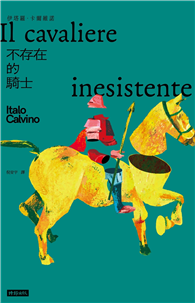Proposes a queer way to be in the world and with others
Invoking queer aesthetics, ethics, and politics, Bottoms Up explores a sexual way to be with others while living with loss. Xiomara Cervantes-Gómez demonstrates how aesthetic representations of sex--namely, bottoming--function as allegorical paradigms, revealing the assemblages of violence that have constituted the social, cultural, and political shifts of Mexico and US Latinx culture from 1950 to the present. With playful, theoretically nuanced prose, Cervantes-Gómez builds upon queer of color theory and continental philosophy to present the "bottom" as a form of relational performance, which she terms "pasivo ethics." The argument develops through a series of compelling case studies, including a series of novels by Octavio Paz and Luis Zapata that trace the position of the bottom in Mexican nationalist literature; the forms of exposure, risk, and proximity in the performance work of artist Lechedevirgen Trimegisto; a reading of violence and the erotic in the work of artist Bruno Ramri; and reading artists such as Yosimar Reyes, Yanina Orellana, and Carlos Martiel as they build a framework of sexual inheritance that carries the traumas of Mexicanness into the diaspora. Through a broad archive rooted in hemispheric Latinx performance, Bottoms Up considers how sexual and political power are bound up with each other in the shaping of Mexicanness. Placing particular emphasis on questions of queer and trans Mexican embodiment, the book explains how Mexicanness is constituted through discourses of exposure.| FindBook |
有 1 項符合
Bottoms Up: Queer Mexicanness and Latinx Performance的圖書 |
 |
Bottoms Up: Queer Mexicanness and Latinx Performance 作者:Cervantes-Gomez 出版社:New York University Press 出版日期:2024-08-13 語言:英文 規格:平裝 / 272頁 / 普通級/ 初版 |
| 圖書館借閱 |
| 國家圖書館 | 全國圖書書目資訊網 | 國立公共資訊圖書館 | 電子書服務平台 | MetaCat 跨館整合查詢 |
| 臺北市立圖書館 | 新北市立圖書館 | 基隆市公共圖書館 | 桃園市立圖書館 | 新竹縣公共圖書館 |
| 苗栗縣立圖書館 | 臺中市立圖書館 | 彰化縣公共圖書館 | 南投縣文化局 | 雲林縣公共圖書館 |
| 嘉義縣圖書館 | 臺南市立圖書館 | 高雄市立圖書館 | 屏東縣公共圖書館 | 宜蘭縣公共圖書館 |
| 花蓮縣文化局 | 臺東縣文化處 |
|
|
圖書介紹 - 資料來源:博客來 評分:
圖書名稱:Bottoms Up: Queer Mexicanness and Latinx Performance
|










